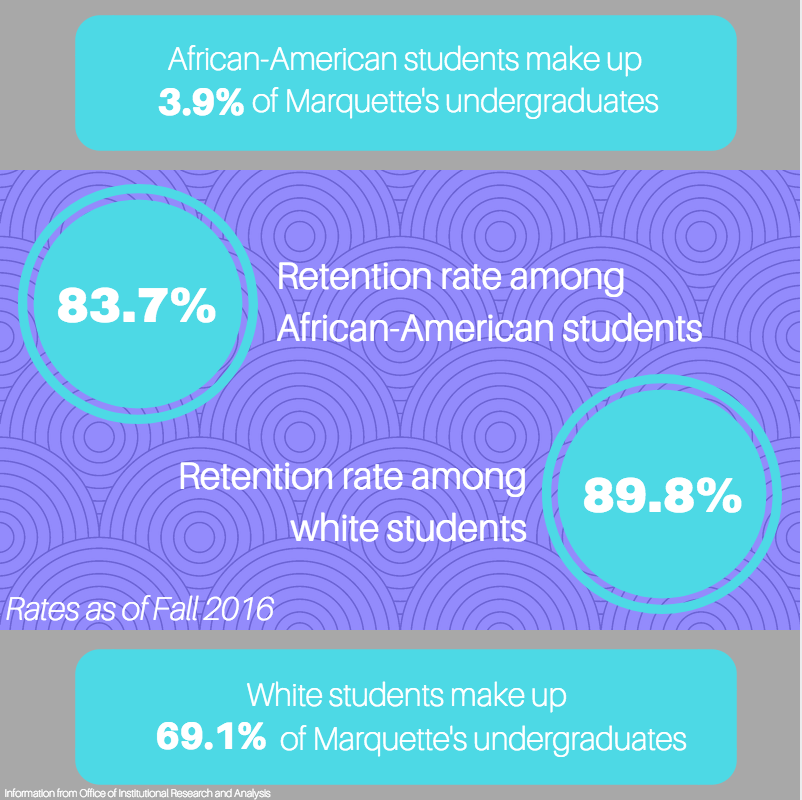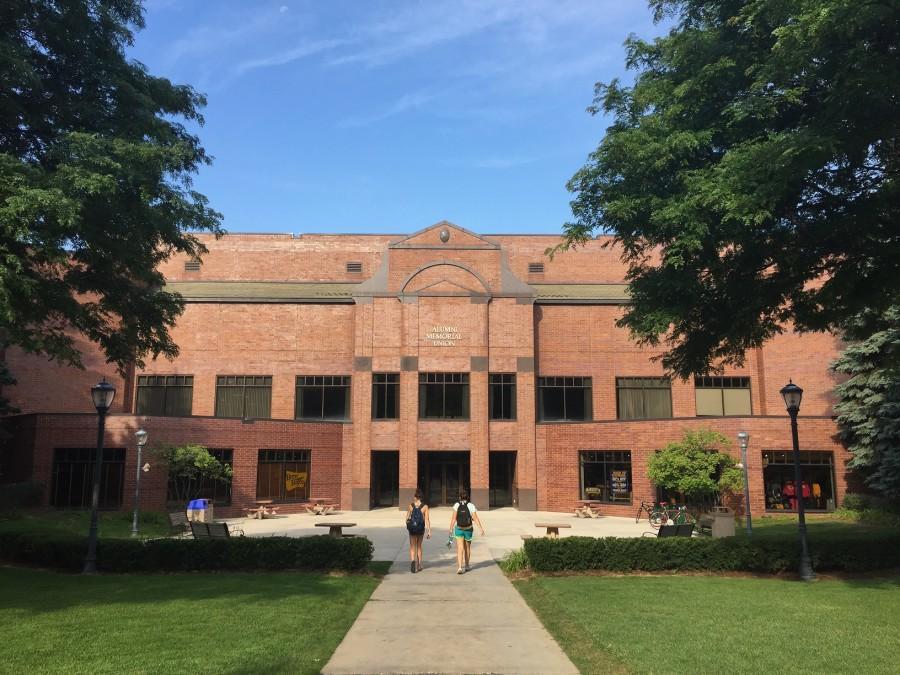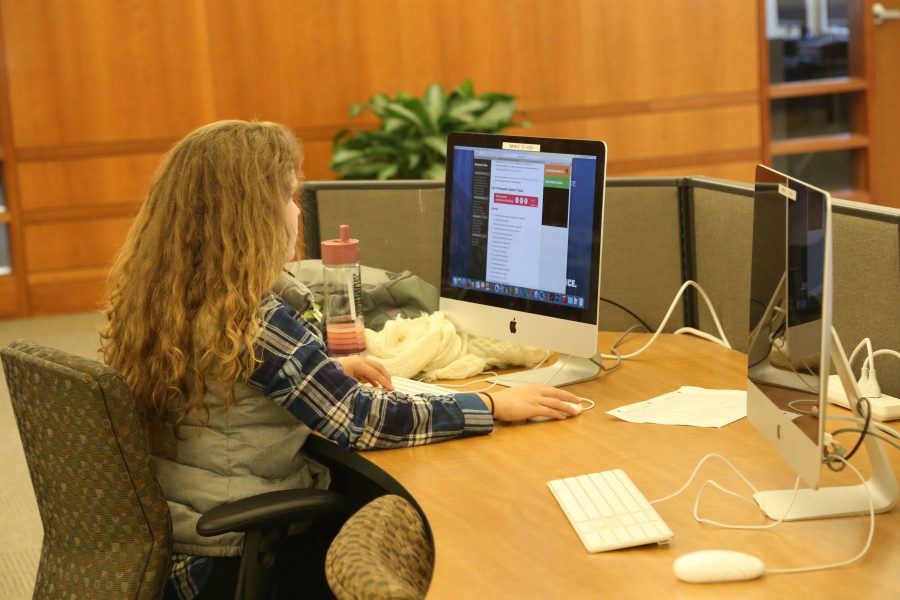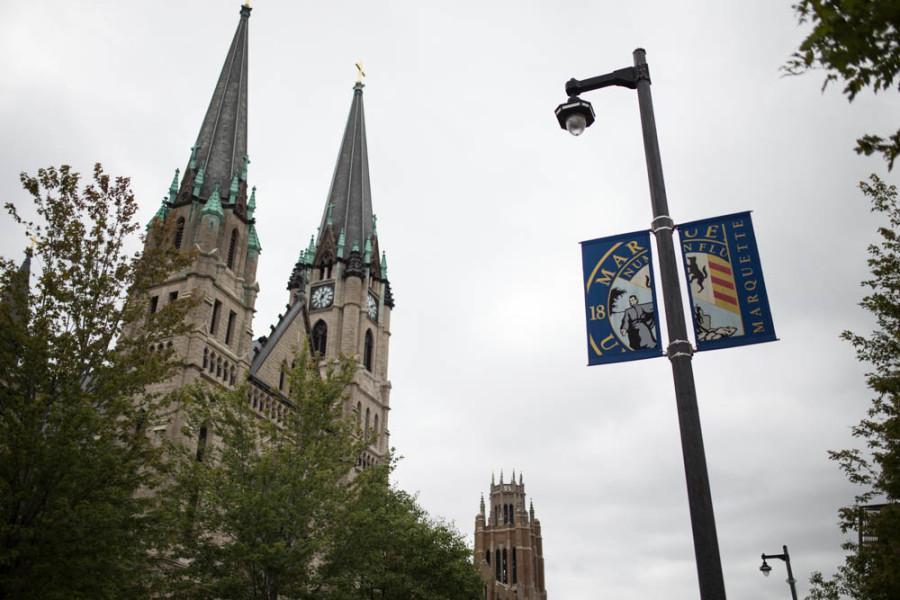In light of national debates on privacy, students are often times unaware of an entirely separate source of potential surveillance: Marquette University.
Under the university’s Information Technology Services Acceptable Use Policy, Marquette retains the right to access, monitor and disclose the activity and content of university email accounts for both staff and students. The same policy also allows for access to any school-owned E-resources, like school computers or telephone networks, or non-university-owned E-resources used on university property and connected to university networks, like a laptop connected to the Marquette Wireless Network.
Ultimately, the university can access almost everything its students do on the Internet.
“It is important to note that the university does not routinely monitor an individual user’s electronic data, software, or communication files,” said Brian Dorrington, senior director of communication, in an email. Dorrington also stated that access to email content may be granted “if the security of a computer or network system is threatened or other misuse of university resources is suspected.”
Access may also be granted, according to the policy, if the university “has a legitimate business need to review such files” and gives examples of a sudden death or incapacity of an employee.
Dorrington declined to disclose the number of student accounts accessed in recent years and cited the number as confidential private security information.
Of nine students the Tribune asked about this issue, none were aware of the specifics of the university policy. Though all were unfamiliar with the policy, most were not taken aback upon learning of the university’s position.
“I’m not surprised by it,” said Sarah Walsh, a senior in the College of Engineering. “The university has a lot of vague policies that allow them to do things for precautionary reasons. I mean, it’s no different from working somewhere later in life where your company is probably monitoring your email for some reason or other.”
Defenders of this policy note that accessing emails may be an issue of security.
“As a service provider, the university has a responsibility to secure our network and to investigate allegations of misuse of E-resources or other incidents,” said Justin Webb, Marquette’s information security officer. “Our policy is quite stringent in the requirements that must be met before access is granted.”
Still, some students voiced concerns about the university’s transparency on accessing student emails.
“I think that students should definitely be better informed that this is a possibility from the get-go when they get the email address,” said Margaret Grace, a senior in the College of Arts & Sciences. “Maybe there could be some sort of annual report that included how many emails they are reading and why they accessed them.”
The official policy states that access to individual activity or content on E-resources will only be granted with the approval from the “area vice president appropriate to the circumstances or the provost/senior vice president, when compelled by court order, or when there is deemed to be an urgent and compelling need to do so.”
Deleted emails and erased data are still subject to university oversight. The Acceptable User Policy states that “data, software and communications files are copied to backup tapes and stored. Items that were deleted may be preserved on backup tapes and retrieved if necessary.”
“The school should be really transparent about when they might access emails,” said Halley Shaw, a senior in the College of Business Administration. “Especially for freshmen, when you get your email there are a million other things to worry about than who is accessing your email. I don’t think it is a big deal under normal circumstances, but having the policy more upfront would only be fair in case a situation comes up where your information is accessed.”










